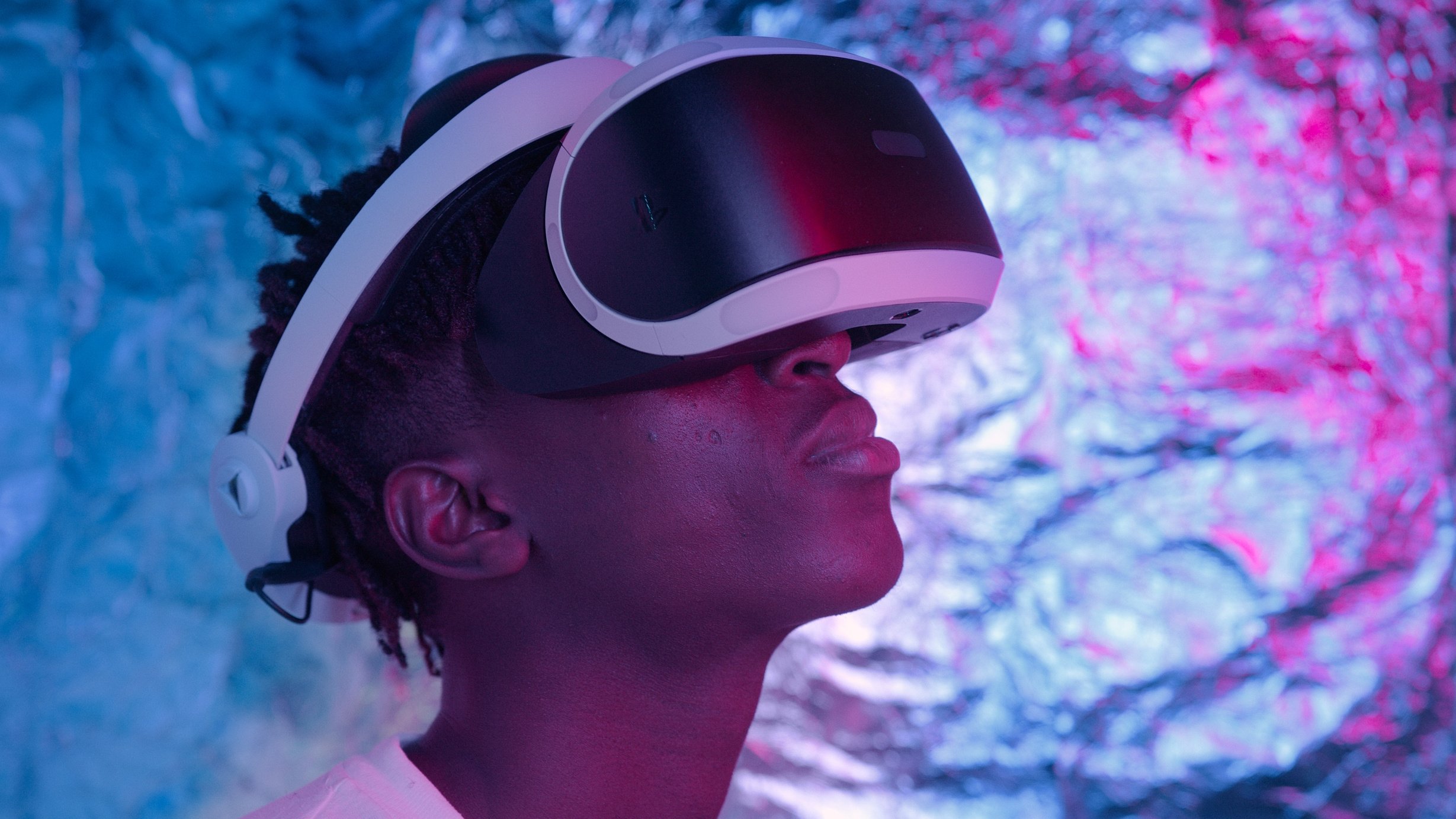
Shaping The Future: Developing Principles for Policy Recommendations for Responsible Innovation in Virtual Worlds
Register Now
CHI 2024, 11-16 may 2024, hawai’i




As Extended Reality (XR) technologies continue to evolve at a rapid pace, they hold the promise of transforming the way we interact with digital information and the physical world.
Whilst Augmented Reality, Virtual Reality, and Mixed Reality technologies offer unbridled opportunity for social connections, productivity, and play, these rapid technological advancements also pose critical challenges to ethics, privacy, accessibility, and safety.
At present, there is little policy documentation that directly addresses the novel affordances posed by XR technologies. Having clear and effective policy frameworks prior to the widespread adoption of a technology encourages and enables responsible and ethical innovation of XR technologies.
This workshop is therefore dedicated to developing forward-thinking policy recommendations that address potential future vulnerabilities posed by the widespread adoption of XR technologies, whilst simultaneously encouraging the responsible innovation of new advancements within XR.
To ensure these policy recommendations promote responsible innovation, the workshop will assemble multidisciplinary academics, industry developers and international policymakers. Our goal is to ensure that all perspectives are considered such that we are able to collaboratively chart a responsible and sustainable course for the XR landscape together.
Keynote Speaker - Dr Sarah Papazoglakis
We are delighted to be hosting Dr Sarah Papazoglakis, a Senior Trust Strategist at Meta’s Reality Lab, as our keynote speaker for this workshop. Dr Papazoglakis will kick off the workshop with a talk titled:
Imagining and Implementing Responsible Innovation: from Speculative Fiction to Technical Reality
Dr Sarah Papazoglakis, Certified Information Privacy Technologist (CIPT) and Certified Information Privacy Manager (CIPM), is a Senior Trust Strategist at Meta’s Reality Labs, building trust, privacy, and responsible innovation frameworks for emerging VR technologies and bridging the gap between AI research and consumer product use. Dr Papazoglakis draws from her humanities PhD to help product and engineering leaders imagine and define positive social impacts of future technologies and scope the requirements needed to build privacy- and trust-by-design into foundational product architectures.
Apply to participate
We invite participants to submit a 2-page position statement which demonstrates their interest and knowledge relevant to responsible innovation and policy for XR technologies.
Deadline for submissions: 6th March 2024.
Workshop: 11th May 2024
Position statements may include previous research, future planned research or novel perspectives on key issues.
Exemplar topics may include (but are not limited to):
i) Knowledge of existing technological policy and its adequacy for addressing XR vulnerabilities
ii) Challenges for data privacy within XR
iii) Content creation & consumption vulnerabilities in XR
iv) Algorithmic vulnerabilities associated with XR
v) Abuse and misuse of XR
vi) Accessibility, inclusivity & equality in XR use
vii) Deceptive patterns within XR design
viii) Consent in virtual environments
ix) High realism and high personalization avatars
x) Moral and ethical frameworks of social behavior in virtual worlds
We encourage participants to submit novel perspectives on XR vulnerabilities & policy concern. We are aiming to create a diverse and inclusive space for workshop attendees to discuss & share ideas. We will ask successful attendees to provide a 1-minute video of their submission prior to the workshop, so attendees can familiarize themselves with each other prior to the event.
Full workshop proposal can be found here:
https://sway.office.com/RQjbK8SDaTpkPIlu?ref=Link
A key goal of the workshop is to produce a policy recommendations paper. Prior to the workshop, we the co-organisers will produce a draft outline of a document that will be populated on the day of the workshop. During the workshop, we will encourage participants to contribute to the content of this paper. We are very keen to ensure that this workshop has a tangible output.
Please send all submissions to ShapingTheFuture-CHI24@bath.ac.uk. Deadline 6th March 2024.
All successful workshop participants must also register for at least one day of ACM CHI 2024.
See https://chi2024.acm.org/ for more information.
Full details regarding workshop logistics can be found at: https://chi2024.acm.org/for-authors/workshops/accepted-workshops/




Workshop Organizers
Mike Richardson (lead organizer)
is a postdoctoral research associate at the University of Bath in the Department of Psychology working on the large-scale MyWorld project ( www.myworld-creates.com ), a centre of creative technology innovation. His work includes understanding perceptual, cognitive, and spatial processes underpinning immersive experiences as well as the implementation of technological interventions for accessibility.
Alicia G. Cork (lead organizer)
is an interdisciplinary postdoctoral research associate at the University of Bath, whose research addresses psychological understandings of online and virtual reality harms. She is part of the National Research Centre for Privacy, Harm Reduction and Adversarial Influence Online, as well as being an associate fellow of the Research Institute for Sociotechnical Cybersecurity.
Michael J. Proulx
is a Reader in Psychology and Director of the Crossmodal Cognition Lab at the University of Bath. He is also Co-Director of the REVEAL Research Centre (REal & Virtual Environments Augmentation Labs) in the Department of Computer Science. His research focuses on the cognitive science of human-technology interaction, with particular interest in inclusive design and accessibility for visual impairments, multisensory perception, comparative cognition, and technologies such as AR and VR.
Xueni Pan
is a Professor of Virtual Reality at Goldsmiths, University London and co-lead the Social, Empathic, and Embodied VR Lab (SEE VR Lab). Xueni’s research focuses on developing VR applications for health and healthcare applications, including training and therapy; she is also interested in using VR as a tool for research in social neuroscience and moral psychology. She also co-leads the Masters in Virtual and Augmented Reality at Goldsmiths Computing.
Danaë Stanton Fraser
is a Professor in Human-Computer Interaction from the University of Bath and leads the CREATE Lab. Danaë’s research focuses on the design and evaluation of mobile and ubiquitous technologies for interactivity and learning. Her current research interests include developing a toolkit to measure audience experience of creative content, transfer of spatial skills from virtual to real spaces and the effects of avatar personalisation.
Veronika Krauβ
is a postdoctoral researcher at the Institute for Verbraucherinformatik, University of Siegen and University of Applied Sciences Bonn-Rhein-Sieg. In her research on HCI and XR technology, she focuses on design and prototyping practices of XR media and emerging next generation dark patterns.
Mohamed Kamis
(http//www.mkhamis.com/) is an Associate Professor at the University of Glasgow, where he leads the SIRIUS Lab. The SIRIUS lab focuses on understanding threats to privacy, security and safety that are facilitated by ubiquitous technologies, such as XR, and designing human-centered system to mitigate said threats. His interests include child safety in Social VR, XR sensing privacy, and secure authentication in XR.
Heide Lukosch
is an Associate Professor at the HIT Lab NZ, University of Canterbury, New Zealand, where she leads the Applied Immersive Gaming Initiative (AIGI). In her research on immersive technologies and games, she includes perspectives of equity and inclusivity, and explores how immersive technologies can offer engaging and safe spaces for learning, training, and decision-making.